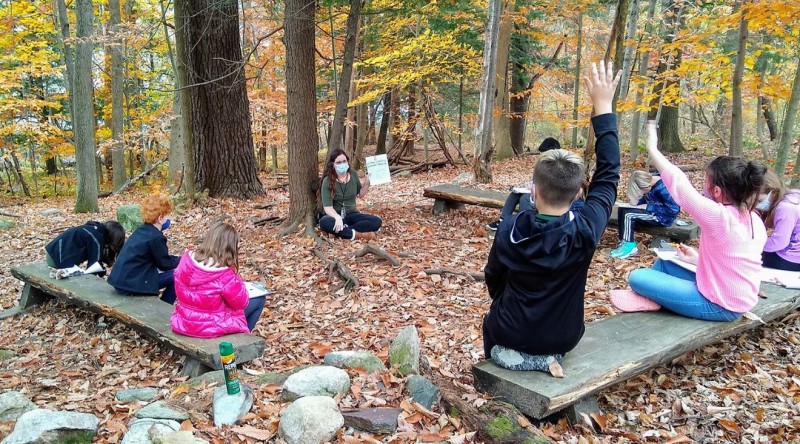
Outdoor education and experiential learning are powerful approaches that provide individuals with unique opportunities to acquire knowledge, develop skills, and foster personal growth in natural environments. This article explores the numerous benefits associated with outdoor education and experiential learning, highlighting how these experiences positively impact various aspects of an individual's life.
Introduction
Outdoor education and experiential learning involve engaging in activities and experiences outside of traditional classroom settings. These experiences often take place in natural environments such as forests, mountains, or wilderness areas. By immersing individuals in nature, outdoor education and experiential learning provide unique opportunities for holistic development.
Building Confidence and Self-Esteem
One of the significant benefits of outdoor education and experiential learning is the boost in confidence and self-esteem. When individuals face challenges in outdoor settings and overcome them, they develop a sense of accomplishment and belief in their abilities. Whether it's conquering a challenging hike or completing a team-building activity, these experiences instill a sense of self-assurance that translates into other areas of life.
Enhancing Problem-Solving Skills
Outdoor education and experiential learning require individuals to think critically and solve problems in real-time. Whether it's navigating through unfamiliar terrain or making decisions during a group activity, participants develop valuable problem-solving skills. The outdoor environment presents unique and unpredictable situations that encourage individuals to think creatively and find practical solutions.
Fostering Teamwork and Collaboration
Collaboration and teamwork are essential skills in today's interconnected world. Outdoor education and experiential learning provide ideal settings for individuals to work together towards common goals. Whether it's setting up camp, completing a ropes course, or participating in a group expedition, these experiences promote teamwork, communication, and cooperation among participants.
Promoting Physical Health and Well-being
Engaging in outdoor activities is an excellent way to promote physical health and well-being. Outdoor education often involves physical challenges such as hiking, kayaking, or rock climbing, which provide opportunities for exercise and cardiovascular fitness. Being in nature also reduces stress levels, improves mood, and enhances overall mental well-being.
Developing Environmental Awareness and Stewardship
Outdoor education and experiential learning play a vital role in developing environmental awareness and fostering a sense of stewardship for the natural world. By immersing individuals in nature, these experiences allow them to witness firsthand the importance of preserving and protecting the environment. Participants gain a deeper understanding of ecological systems, sustainability, and the impact of human actions on the planet.
Cultivating Emotional Intelligence
Outdoor education and experiential learning contribute to the development of emotional intelligence. Participants learn to manage their emotions, build resilience, and develop empathy towards others. The outdoor environment provides a rich and dynamic setting for individuals to explore their emotions, face challenges, and learn effective coping mechanisms.
Stimulating Creativity and Imagination
Nature has a way of inspiring creativity and stimulating the imagination. Outdoor education and experiential learning experiences encourage participants to observe, explore, and appreciate the natural world. This exposure to nature's beauty and wonders fuels creative thinking, problem-solving, and innovation.
Improving Academic Performance
Engaging in outdoor education and experiential learning can have a positive impact on academic performance. Studies have shown that students who participate in outdoor education programs often demonstrate increased motivation, improved focus, and enhanced retention of information. The hands-on, experiential nature of outdoor learning creates a more memorable and engaging educational experience.
Nurturing Personal Growth and Resilience
Outdoor education and experiential learning provide fertile ground for personal growth and the development of resilience. Through facing challenges, overcoming obstacles, and embracing new experiences, individuals become more self-aware, adaptable, and resilient. These experiences help individuals build character, develop a growth mindset, and foster a sense of purpose and direction in life.
Creating Lasting Memories and Experiences
Participating in outdoor education and experiential learning creates lasting memories and experiences that stay with individuals throughout their lives. Whether it's a thrilling adventure, a breathtaking view, or a deep connection with nature, these experiences have a profound impact on personal development and contribute to a sense of fulfillment and happiness.
Conclusion
Outdoor education and experiential learning offer numerous benefits that contribute to personal growth, skill development, and well-being. From building confidence and problem-solving skills to fostering teamwork and environmental awareness, these experiences have a transformative effect on individuals. By engaging in outdoor education and experiential learning, individuals can unlock their full potential and forge a deeper connection with the natural world.
Alternative Methods of Education and Their Success Stories
The art of creating miniature dioramas and their historical context
Exploring the World of Augmented Reality: Blending the Physical and Digital Realms